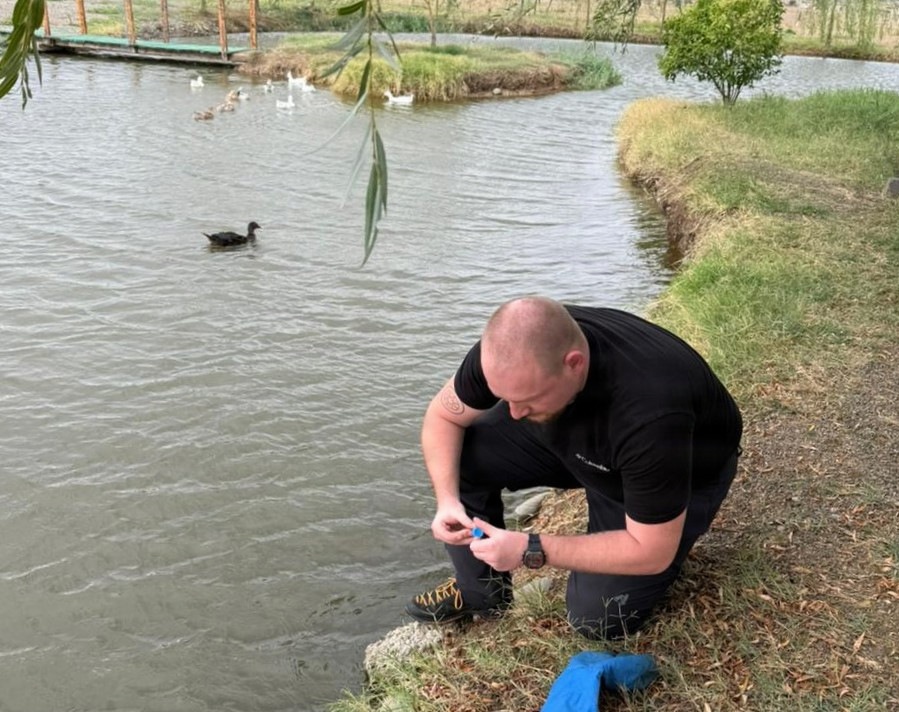
The Walter Reed Army Institute of Research Europe – Middle East (WRAIR-EME) in partnership with the Georgian Defense Forces (GDF) under the framework of an ongoing Enteric surveillance study. As part of a growing One Health surveillance effort, environmental water samples were collected for the first time from military bases across multiple regions of Georgia to test for enteric pathogens. Sampling focused on standing natural water bodies (ponds, lakes) and persistent puddles caused by leaking drinking water within military facilities, areas commonly accessed by troops and military working dogs during active field training operations.
Sampling and surveillance were conducted during May – September 2025.
Environmental water samples were collected from military installations in Adjara, Samegrelo, Akhaltsikhe, Kakheti, Tbilisi. All laboratory testing and microbial analyses were performed by WRAIR-EME. Contaminated environmental water poses a direct Force Health Protection (FHP) threat, particularly in field training environments where military personnel and working dogs may be exposed to untreated sources. Prior to this study, no baseline data existed on enteric pathogen presence near or within Georgian military installations. This surveillance effort was initiated to Identify contaminated environmental sources posing health risks to troops and working animals, to support early warning systems for infectious disease outbreak prevention, and to enhance readiness for large-scale, multinational exercises including Agile Spirit and Noble Partner which are held annually in Georgia and involve U.S. forces, NATO allies, and regional partners. The highest levels of contamination, with significantly greater pathogen presence were detected in Akhaltsikhe and Tbilisi, while Kakheti, Samegrelo, and Adjara had comparatively lower levels. Preliminary results revealed multiple bacterial pathogens linked to gastrointestinal illness, including different pathogenic E. coli, Plesiomonas shigelloides, Vibrio cholerae, Salmonella spp., and Campylobacter spp. The parasite Giardia lamblia was also detected. Notably, enteroviruses were detected only in May samples. The identification of multidrug-resistant (MDR) strains of E. coli further highlights the potential health risks associated with contaminated water sources. These findings suggest contamination and potential for waterborne disease transmission during study period, emphasizing the need for routine environmental surveillance in military base Expand environmental surveillance to more EUCOM and CENTCOM-aligned regions. Use findings to inform medical risk assessments for Agile Spirit, Noble Partner, and similar exercises. Apply genomic sequencing to trace sources, track spread, and monitor antimicrobial resistance.
| Date Taken: | 09.17.2025 |
| Date Posted: | 11.14.2025 11:06 |
| Photo ID: | 9380842 |
| VIRIN: | 250918-A-A1902-1001 |
| Resolution: | 899x712 |
| Size: | 212.81 KB |
| Location: | GE |
| Web Views: | 16 |
| Downloads: | 0 |

This work, First Documented Environmental Surveillance for Enteric Pathogens in Georgian Military Bases [Image 12 of 12], by CPT Daniel Kankam, identified by DVIDS, must comply with the restrictions shown on https://www.dvidshub.net/about/copyright.